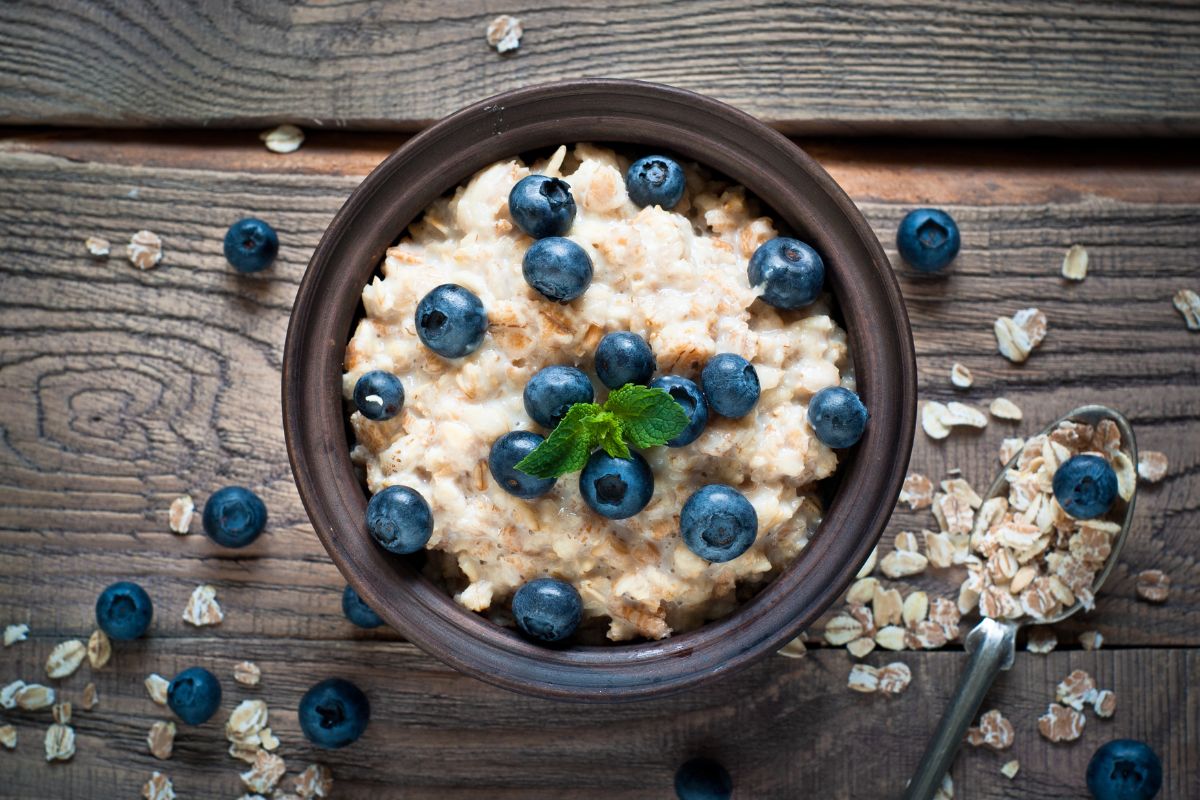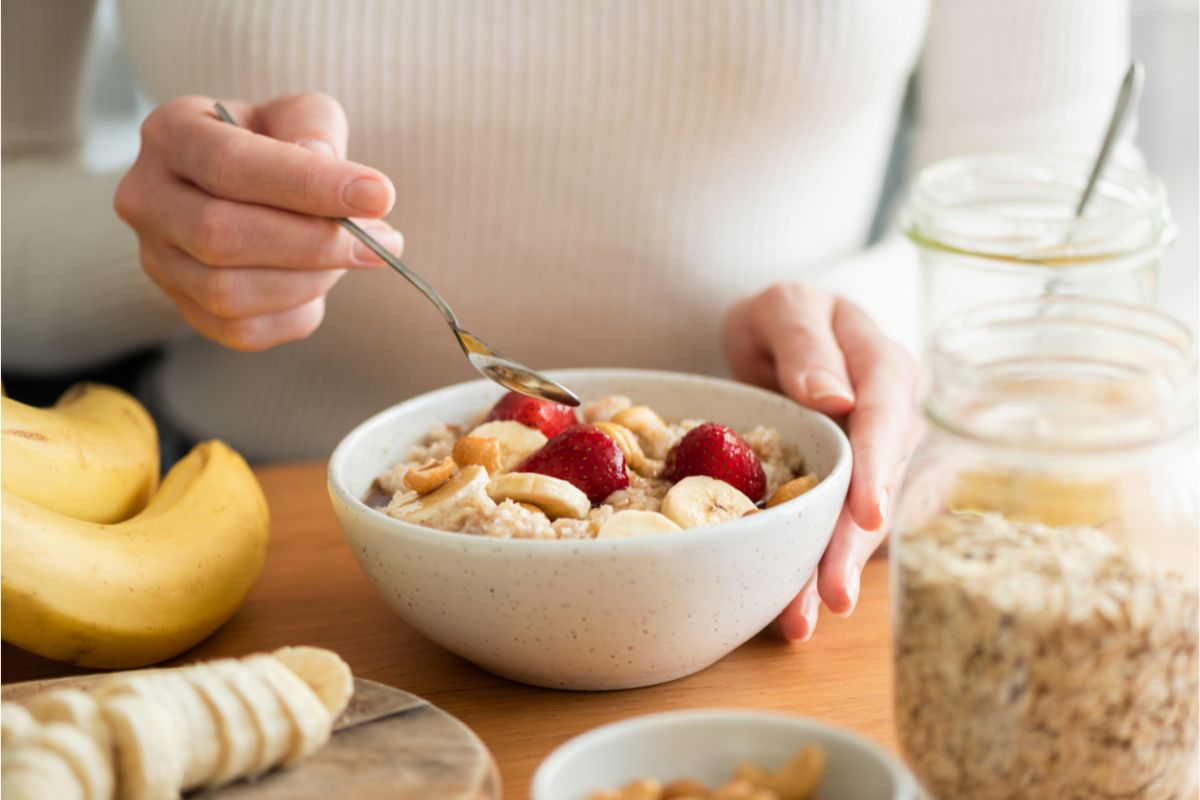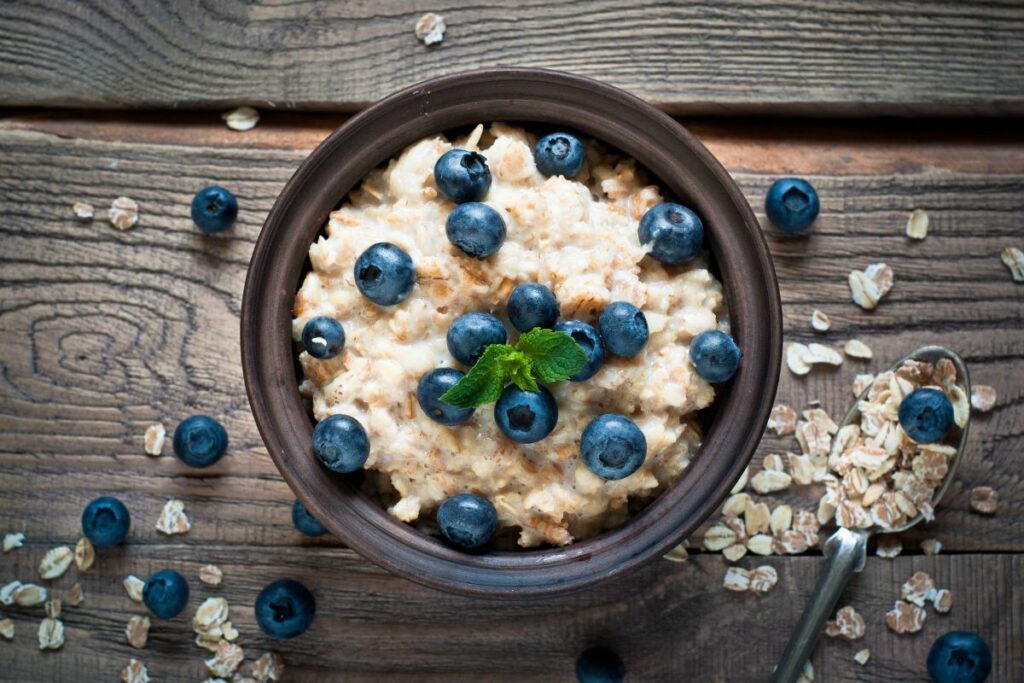Oatmeal is a traditional breakfast option and is regarded as a nutritious way to start the day because of its warm, soothing flavour and delightfully chewy texture.
However, you might be unsure if oatmeal’s carbs are OK for the keto diet.

Learn more about this well-known grain and whether or not oatmeal is a keto-friendly food by reading on.
Oatmeal: What Is It?
Water or milk is combined with crushed or rolled oats to create oatmeal. Oats quickly absorb liquid, turning them into the familiar, fluffy comfort food.
The essential B vitamins riboflavin, thiamine, niacin, pantothenic acid, and folate are all abundant in oats. These vitamins are essential for developing new cells, maintaining good skin, hair, and muscles.
Calcium, potassium, manganese, phosphorus, magnesium, sodium, and zinc are just a few of the minerals found in oats.
These are widely known for delivering oxygen around the body, controlling blood pressure, and aiding in the formation and protection of bones.
Additionally, oats are a fantastic source of dietary fibre, which has been demonstrated to lower cholesterol and blood sugar levels as well as the risk of heart disease, diabetes, and stroke.
Wholegrain oats, bran, steel-cut oats, instant oats, rolled oats, quick oats, and oat flour are among the many kinds of oats.
Whole grain oats are the least processed form (and hence the healthiest to consume). The most nutritious oats also take the longest to prepare – that’s why many people choose instant oats and rolled oats instead.
Oats are a very adaptable cereal that are used in many different dishes besides just breakfast porridge, including biscuits, granola, breads, pancakes, and more.
Oats are innately gluten-free, although they are frequently packed in establishments that also handle gluten. So, if you’re sensitive to or intolerant of gluten, choose oats which are clearly displayed as gluten-free.
Dietary Information About Oats
100 g of oats, or 3.5 oz., have roughly 389 calories overall. These calories contain 17 g of protein – and 66 g of carbohydrates, 56 g of net carbohydrates, 10 g of fiber, plus 7 g of fat when broken down.
This amount of carbs will obviously make entering into ketosis very difficult.
In fact, even ingesting half of this quantity would result in 28 g of carbs, which means you would be ingesting over half of your daily carbohydrate needs in a single meal.
Early on in the ketogenic diet, you should stay away from these carbohydrates because your body will be using them as its primary source of energy rather than turning to your stored fat and ketones first.
Oats are among the healthiest morning cereal options and are loaded with health benefits, but they might not be a good choice for a keto diet.
How Would Oatmeal Work With A Keto Or Low-Carb Diet?

One of the more difficult high-carb healthy items to give up while beginning a keto diet is oatmeal.
The good thing is that there are numerous low-carb oatmeal substitutes that will satisfy your optimal keto macronutrient requirements.
However, it’s not difficult to include a small amount of oatmeal if you’re on a low-carb or ketogenic diet.
Despite the fact that 100 g of oats contain 56 g of carbohydrates, you should only consume half of that amount (25 g). You’ll reduce your carb intake all the way to 14 g, staying within the recommended range of carbs per meal.
The typical keto diet suggests keeping your daily carbohydrate intake between 20 and 50 g. If you’re just starting the keto diet, this is extremely crucial.
Your body prefers carbohydrates as a fuel source and uses glycogen reserves for initial energy. If your body is starved of carbohydrates, it will turn to fat, which is its second preferred energy source.
Your body will continue to look for carbohydrates as its main energy source if you are just starting the move to ketosis. Thus, it is best to consume fewer carbohydrates.
There might be additional choices for people who have already been in ketosis for some time and understand how to be in tune to their bodies.
A tailored ketogenic diet is a sort of keto diet that permits 20–50 extra g of carbohydrates up to 1 hour before and after exercise, and is designed for more athletic people who require the extra carbohydrate consumption.
The cyclic keto diet can be a better option if an athlete training with intense intensity nevertheless needs more carbs.
The CKD is a form of keto diet designed for people who train so hard that all of their glycogen stores are depleted.
The CKD consumes a high-carb, low-fat diet for the other two days of the week, anywhere from 24 to 48 hours.
The CKD consumes the typical keto diet on the other 5 days of the week. Depending on the individual, the carb intake throughout those 48 hours may range from 400 – 600 g.
Oatmeal’s Carbs: When To Avoid Them
Even while oatmeal has a lot of nutritious benefits, it can be challenging to lose weight due to its high carb content (Check out another use for Oatmeal Here).
However, despite having a lot of carbohydrates, oatmeal doesn’t cause a spike in blood sugar. In actuality, it has a glycemic index of 57 for every 250 g.
You may want to stay away from anything containing oats as the major ingredient, especially oatmeal, if you’re just beginning a reduced carb or ketogenic diet.
Oatmeal can be reinstated as long as it’s done in lesser amounts once your metabolism has been changed to a state of ketosis and you can enter ketosis more quickly.
Final Thoughts
Although oatmeal is a hearty breakfast option, it is not a low-carb or keto-friendly food (Also check out Is Oatmeal Gluten-Free?). There are oatmeal substitutes that should taste just as nice, which is fantastic news.
Additionally, there are a few caveats to maintain oatmeal in your keto diet if you simply can’t resist it.








